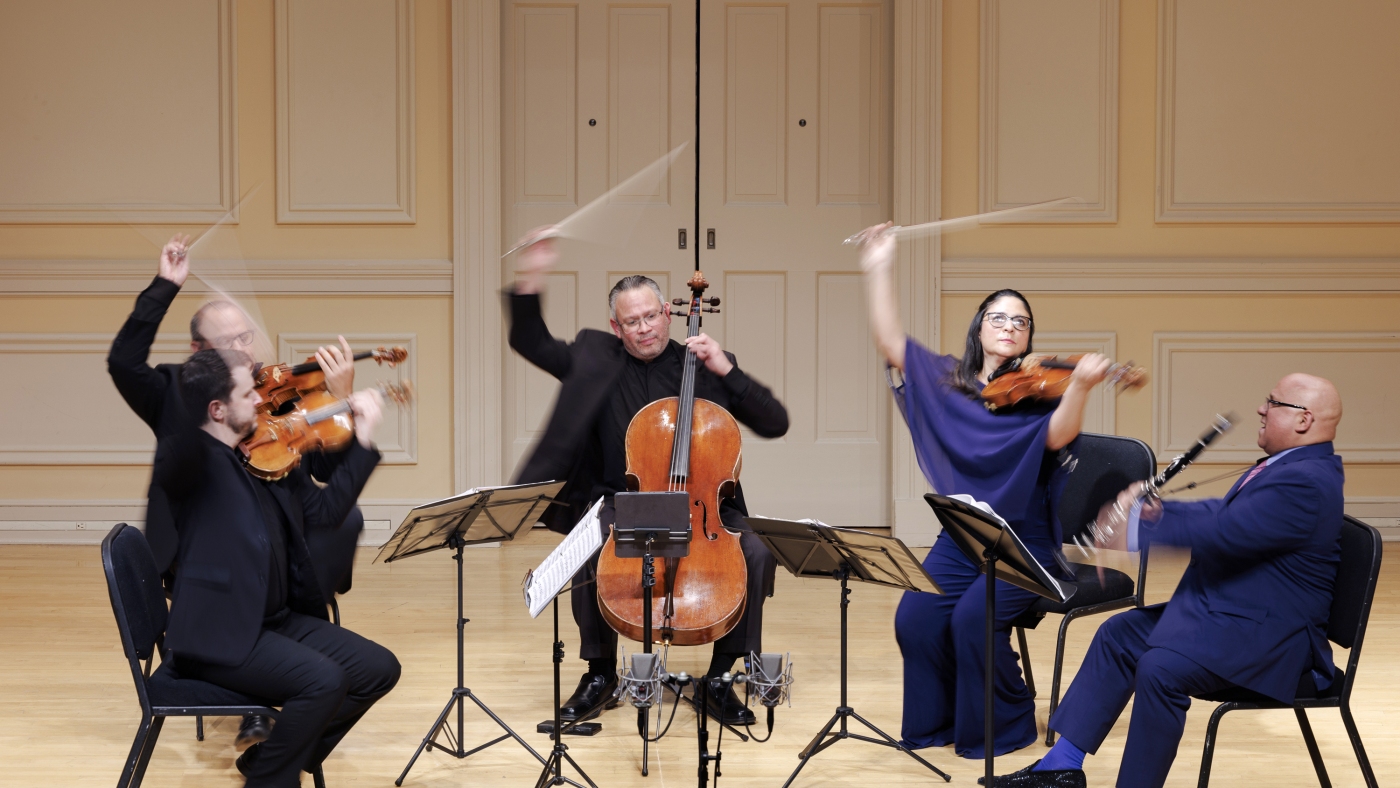One of music's best kept secrets celebrates 100 years, quietly The story of Coolidge Auditorium, at the Library of Congress, is one of American ingenuity, cultural integrity and a century of free concerts.
toggle caption Shawn Miller/Library of Congress
The year is 1925. The Great Gatsby is published, the jazz age is swinging, and on October 28th, a new concert hall opens at an unlikely spot — the Library of Congress, in Washington D.C. If only its cream-colored walls could talk. For 100 years, performers of all stripes have graced the Library stage, from classical music luminaries like Béla Bartók and Igor Stravinsky to Stevie Wonder, Audra McDonald and Max Roach. Today, it remains one of the capitol city's most beautiful, best sounding and perhaps best kept secrets.
The idea for a concert hall at the Library of Congress did not stem from congress. It came from philanthropist Elizabeth Sprague Coolidge — and one bespoke piece of bipartisan legislation. "She was indefatigable and intrepid," says Anne McLean, senior producer for concerts at the Library, "a remarkable woman, six feet tall, a brilliant pianist." McLean is sitting with me on the stage, overlooking the empty auditorium. To mark the centennial, celebratory concerts and commissions have been heard in the hall all year. But not now. The government shutdown has forced the hall to close its doors, and unless a deal is reached before Tuesday, it'll be closed on the anniversary itself.
Sponsor Message
Coolidge was born into a wealthy Chicago family in 1864. She studied music, traveled abroad, married a Harvard-trained orthopedic surgeon and, in 1924, came to Washington to establish a foothold in the nation's capitol.
Continue Reading on NPR
This preview shows approximately 15% of the article. Read the full story on the publisher's website to support quality journalism.
